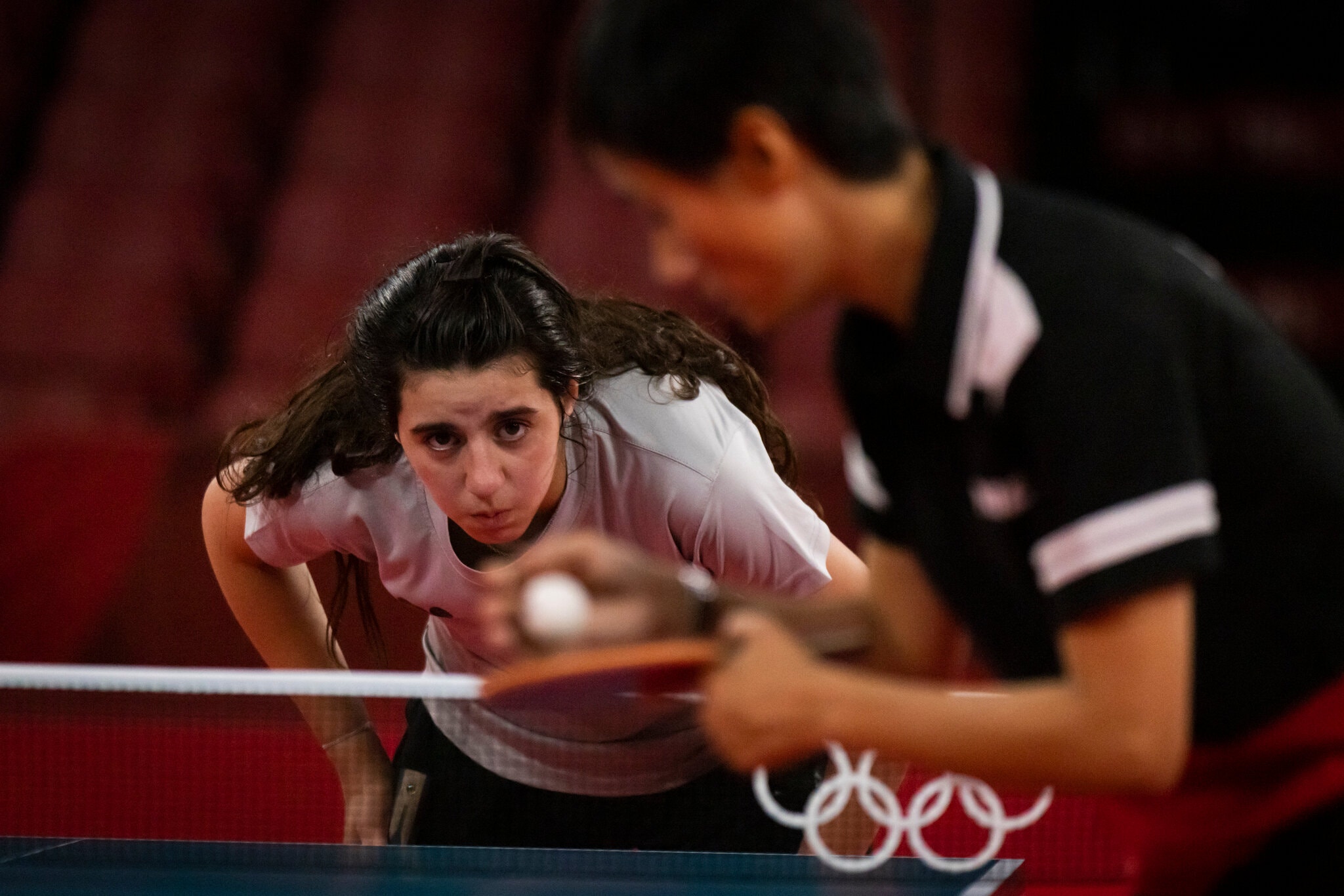"Everything happens to everybody sooner or later," wrote George Bernard Shaw, adding the caveat, "if there is time enough." In this universe of infinite possibilities, where the 12th monkey randomly types out the complete works of Shakespeare, anything can happen. In Tokyo, however, we are now focused on the one generally agreed upon reality, where a finite number of table tennis players (172) are competing for a much smaller number of Olympic medals (15). Among these 172 aspirants, much has been made of the anomalous ages in play. The youngest participant is Hend Zaza of Syria (pictured). At 12, she is the youngest table tennis Olympian ever and the youngest Olympian in any discipline since 1992. Zaza overcame unimaginably challenging conditions to qualify for the Tokyo Games. Training in the chaos and horror of the Syrian civil war, Zaza has grown accustomed to practicing in a concrete room without electricity. In last year's West Asian Olympic qualifiers, the then-11-year-old Zaza beat Mariana Sahakian in the final, a Lebanese player 31 years her senior. In her Olympic debut, Zaza faced Australia's Liu Jia. The veteran Liu, 39, prevailed in straight sets, but the victorious mother of her own 10-year-old girl gave Zaza a maternal hug after the match. "There's sport and there's life," Liu reflected afterward. "There are people who have to endure difficulties. They are amazing, it hasn't been easy for them. She's a girl too -- to be in an Olympics at 12, in my heart I really admire her." On the other extreme of age distribution, Luxembourg's Ni Xia Lian was the oldest entrant. At 58 years of age, she is the oldest table tennis Olympian ever. Competing in her fifth Games, Ni drew 17-year-old Korean debutante Shin Yubin in the first round. After a back-and-forth match, it was the teenager who advanced in seven games. Hend Zaza and Ni Xia Lian have defied the odds, proving that table tennis is a lifelong sport with at least a 46 year range of Olympic viability. With their early exits, however, the field regresses toward the mean, leaving them to wonder what might have been. If only there were time enough.
More at The New York Times
